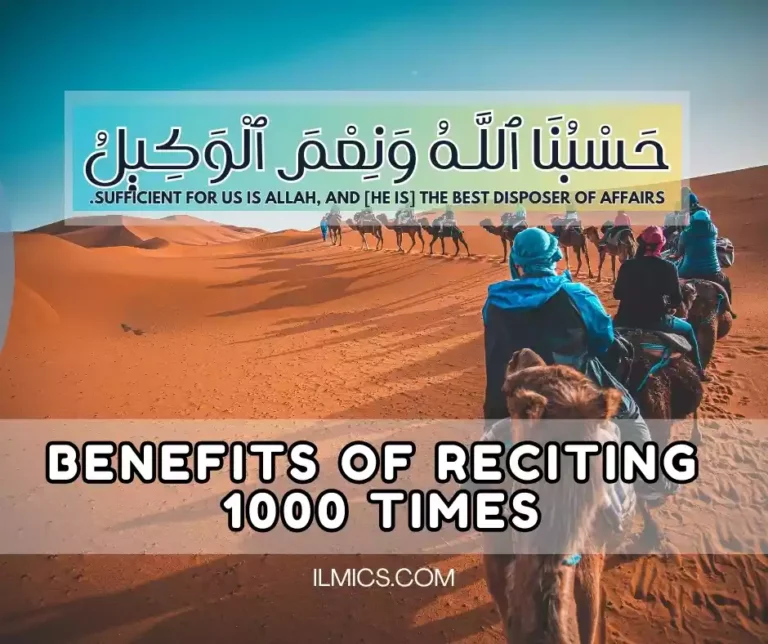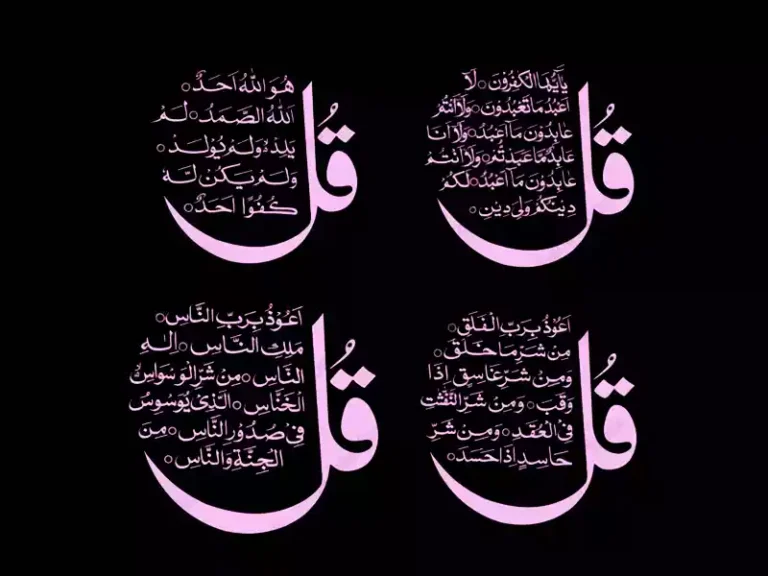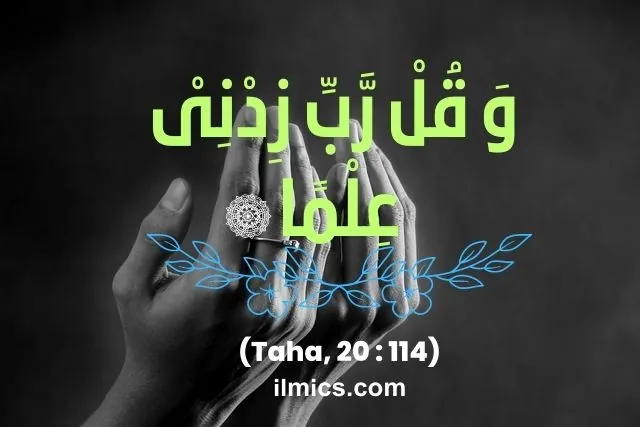Dua for Parents: Prayers for Health, Happiness, and Eternal Blessings
Introduction
Making dua for parents strengthens the bond between children and their parents, fostering love, respect, and care. Through dua, we express heartfelt gratitude to Allah for the precious gift of our parents, beseeching Him to bestow His mercy upon them.
In the Islam, the importance of dua for parents is deeply ingrained in the teachings of the Quran, Hadith and Sunnah. Making dua for parents holds immense importance as it not only expresses gratitude and respect but also strengthens the profound bond shared with them.
The Quran places great emphasis on the respect and care we owe to our parents. It states, “Your Lord has ordained that you worship none but Him and that you be kind to parents. Whether one or both of them reach old age in your presence, say not to them a word of contempt, nor repel them, but address them in terms of honor” (Quran 17:23). This verse highlights the divine command to honor and cherish our parents.

Dua for Parents in the Quran
Discovering the divine guidance regarding dua for parents in the Quran unveils the significance and blessings associated with supplicating for our parents. The Quran, as the ultimate source of wisdom and guidance, provides us with verses and surahs that emphasize the importance of dua for our beloved parents.
﷽ وَ وَصَّیْنَا الْاِنْسَانَ بِوَالِدَیْهِ اِحْسٰنًا ؕ حَمَلَتْهُ اُمُّهٗ كُرْهًا وَّ وَضَعَتْهُ كُرْهًا ؕ وَ حَمْلُهٗ وَ فِصٰلُهٗ ثَلٰثُوْنَ شَهْرًا ؕ حَتّٰۤی اِذَا بَلَغَ اَشُدَّهٗ وَ بَلَغَ اَرْبَعِیْنَ سَنَةً ۙ قَالَ رَبِّ اَوْزِعْنِیْۤ اَنْ اَشْكُرَ نِعْمَتَكَ الَّتِیْۤ اَنْعَمْتَ عَلَیَّ وَ عَلٰی وَالِدَیَّ وَ اَنْ اَعْمَلَ صَالِحًا تَرْضٰىهُ وَ اَصْلِحْ لِیْ فِیْ ذُرِّیَّتِیْ ؕۚ اِنِّیْ تُبْتُ اِلَیْكَ وَ اِنِّیْ مِنَ الْمُسْلِمِیْنَ (al-Ahqaf, 46 : 15) And We have commanded man to be benevolent towards his parents. His mother bears him (in the womb) with pain and gives birth to him with pain. And bearing him (in the womb) and weaning of him (i.e., the period of pregnancy and feeding) is (spread over) thirty months. Till, when he attains to manhood and then reaches (the age of) forty years, he says: ‘O my Lord, bestow on me the ability to give You thanks for the favour which You have done to me and my parents, and that I may do such deeds as may please You, and endow me and my children with virtue and piety. Assuredly I turn to You, and certainly I am of those who obey You in submissiveness.’ اور ہم نے انسان کو اپنے والدین کے ساتھ نیک سلوک کرنے کاحکم فرمایا۔ اس کی ماں نے اس کو تکلیف سے (پیٹ میں) اٹھائے رکھا اور اسے تکلیف کے ساتھ جنا، اور اس کا (پیٹ میں) اٹھانا اور اس کا دودھ چھڑانا (یعنی زمانۂ حمل و رضاعت) تیس ماہ (پر مشتمل) ہے۔ یہاں تک کہ وہ اپنی جوانی کو پہنچ جاتا ہے اور (پھر) چالیس سال (کی پختہ عمر) کو پہنچتا ہے، تو کہتا ہے: اے میرے رب: مجھے توفیق دے کہ میں تیرے اس احسان کا شکر ادا کروں جو تو نے مجھ پر اور میرے والدین پر فرمایا ہے اور یہ کہ میں ایسے نیک اعمال کروں جن سے تو راضی ہو اور میرے لئے میری اولاد میں نیکی اور خیر رکھ دے۔ بیشک میں تیری طرف رجوع کرتا ہوں اور میں یقیناً فرمانبرداروں میں سے ہوں Reference
Dua for Parents in Arabic
The Arabic language is considered the language of the Quran, making it the ideal medium to communicate with Allah and express our heartfelt supplications for our parents. The eloquence and precision of Arabic words add a profound sense of reverence and sincerity to our prayers.
﷽ وَ اخْفِضْ لَهُمَا جَنَاحَ الذُّلِّ مِنَ الرَّحْمَةِ وَ قُلْ رَّبِّ ارْحَمْهُمَا كَمَا رَبَّیٰنِیْ صَغِیْرًاؕ (al-Isra’, 17 : 24) And always lower your wings of submissiveness and humility out of soft-heartedness for both of them, and keep supplicating (Allah): ‘O my Lord, have mercy on both of them as they brought me up in (my) childhood (with mercy and clemency).’ اور ان دونوں کے لئے نرم دلی سے عجز و انکساری کے بازو جھکائے رکھو اور (اللہ کے حضور) عرض کرتے رہو: اے میرے رب! ان دونوں پر رحم فرما جیسا کہ انہوں نے بچپن میں مجھے (رحمت و شفقت سے) پالا تھا Reference
By engaging in dua for parents in Arabic, we not only honor the Islamic tradition but also tap into the profound spiritual connection with our Creator. It serves as a powerful means to seek Allah’s blessings, mercy, and protection for our beloved parents.
Dua for Parents in Urdu
Dua for parents in Urdu carries a unique charm that resonates with the hearts of Urdu-speaking Muslims. Urdu, with its poetic and expressive nature, adds a touch of beauty and tenderness to the prayers offered for the happiness and well-being of parents.
The beauty of dua for parents in Urdu lies in its ability to convey deep emotions and heartfelt sentiments. It allows individuals to express their love, respect, and gratitude towards their parents in a language that is close to their hearts.
One heartwarming Urdu prayer for parents’ happiness is:
﷽
This heartfelt dua encapsulates the profound desire for the happiness, health, and prosperity of parents, seeking Allah’s blessings and protection for them.
By offering dua for parents in Urdu, we embrace the richness of our cultural and linguistic heritage, expressing our love and devotion to our parents in a language that resonates deeply within us.
Dua for Parents’ Health and Long Life
Praying for the health and long life of our parents is of utmost importance in Islam. Our parents are a source of blessings, and their well-being is a reflection of Allah’s mercy upon us. Engaging in dua for parents’ health not only demonstrates our love and care for them but also fulfills our duty as obedient children.
The Quran reminds us,
﷽ وَ قَضٰی رَبُّكَ اَلَّا تَعْبُدُوْۤا اِلَّاۤ اِیَّاهُ وَ بِالْوَالِدَیْنِ اِحْسَانًا ؕ اِمَّا یَبْلُغَنَّ عِنْدَكَ الْكِبَرَ اَحَدُهُمَاۤ اَوْ كِلٰهُمَا فَلَا تَقُلْ لَّهُمَاۤ اُفٍّ وَّ لَا تَنْهَرْهُمَا وَ قُلْ لَّهُمَا قَوْلًا كَرِیْمًا (al-Isra’, 17 : 23) And your Lord has commanded you not to worship anyone other than Allah, and treat parents with benevolence. If either or both of them attain old age in your presence, then do not say even ‘Ugh!’ to them, nor reproach them. And always speak to both of them submissively, observing polite manners. اور آپ کے رب نے حکم فرما دیا ہے کہ تم اللہ کے سوا کسی کی عبادت مت کرو اور والدین کے ساتھ حسنِ سلوک کیا کرو، اگر تمہارے سامنے دونوں میں سے کوئی ایک یا دونوں بڑھاپے کو پہنچ جائیں تو انہیں ”اُف“ بھی نہ کہنا اور انہیں جھڑکنا بھی نہیں اور ان دونوں کے ساتھ بڑے ادب سے بات کیا کرو Reference
Offering general dua for parents’ good health, such as praying for their strength, vitality, and protection from illnesses, is encouraged. These heartfelt prayers reflect our sincere concern for their physical and mental well-being.
By regularly engaging in dua for parents’ health and long life, we acknowledge the importance of their presence in our lives and express gratitude to Allah for the precious gift of our parents. It is through these prayers that we seek Allah’s mercy and blessings upon them, allowing us to fulfill our responsibilities as dutiful children.
Dua for the Departed Parents
Offering prayers for the eternal peace of our departed parents is a way to honor their memory and seek Allah’s mercy and blessings upon their souls. Dua for the departed parents allows us to maintain a spiritual connection with them and embrace the legacy they left behind.
In Islam, we believe that our prayers can benefit the deceased. The Prophet Muhammad (Peace Be Upon with Him) said, “When a person dies, all their deeds come to an end except three: ongoing charity, beneficial knowledge, and a righteous child who prays for them”
We can offer heartfelt prayers for the forgiveness and mercy of our deceased parents, such as:
﷽ رَبَّنَا اغْفِرْ لِیْ وَ لِوَالِدَیَّ وَ لِلْمُؤْمِنِیْنَ یَوْمَ یَقُوْمُ الْحِسَابُ۠ (Ibrahim, 14 : 41) O my Lord! Forgive me and (forgive) my parents* and all the believers as well on the Day when reckoning (and accountability) will be held.’ اے ہمارے رب! مجھے بخش دے اور میرے والدین کو (بخش دے)٭اور دیگر سب مومنوں کو بھی، جس دن حساب قائم ہوگا Reference
Embracing the legacy of our deceased parents through dua also involves continuing their good deeds, spreading knowledge, and engaging in acts of charity on their behalf. By carrying forward their values and teachings, we honor their memory and contribute to their ongoing rewards.
Remembering our deceased parents through dua allows us to honor their memory and express our love and gratitude for the years they spent nurturing and guiding us. It is an opportunity to reflect on their positive impact in our lives and seek Allah’s mercy upon them.
Additionally, engaging in acts of charity, giving in their name, and performing good deeds on their behalf are considered acts of kindness that can benefit the souls of our deceased parents.
Dua-e-Maghfirat for Parents in Arabic
Dua-e-Maghfirat holds a significant place in Islamic supplications, especially when seeking forgiveness for our parents. Unveiling the concept of Dua-e-Maghfirat in Arabic allows us to understand the essence of seeking Allah’s mercy and forgiveness for our beloved parents.
Dua-e-Maghfirat is a heartfelt plea to Allah, beseeching Him to forgive the sins and shortcomings of our parents and grant them His infinite mercy. This supplication acknowledges the human imperfections and the need for divine forgiveness for ourselves and our parents.
Supplications for seeking forgiveness for parents in Arabic can be recited with utmost sincerity, such as:
“اللَّهُمَّ اغْفِرْ لِوَالِدَيَّ وَارْحَمْهُمَا وَاعْفُ عَنْهُمَا وَأَدْخِلْهُمَا جَنَّتَكَ بِغَيْرِ حِسَابٍ”
“O Allah, forgive my parents, have mercy upon them, pardon their sins, and admit them into Your Paradise without any accountability.”
This powerful dua not only seeks forgiveness but also encompasses our desire for the ultimate reward of Paradise for our parents. It is an expression of our sincere love and concern for their eternal well-being.
Through Dua-e-Maghfirat, we acknowledge our parents’ sacrifices and seek Allah’s mercy, hoping that He will forgive their sins and elevate their ranks in the hereafter. It is a means of honoring their memory, seeking their well-being even after their departure, and demonstrating our love and gratitude.
Dua for Parents’ Long Life and Health
Wishing for the longevity and good health of our parents through dua is a heartfelt expression of love and concern. We seek Allah’s blessings and mercy to grant them a life filled with vitality and well-being. By seeking forgiveness for our parents and asking for Allah’s mercy upon them, we acknowledge their importance in our lives and our deep concern for their well-being. This prayer reflects our hope for their physical and spiritual health.
It is essential to regularly offer dua for parents’ long life and health, as it demonstrates our love, gratitude, and care for them. By sincerely beseeching Allah, we seek His blessings, protection, and healing for our parents. It is a way to honor their presence and cherish the invaluable role they play in our lives.
In addition to reciting specific Quranic prayers, we can also engage in general supplications, asking Allah to grant our parents good health, strength, and a long life filled with happiness and blessings.
Summary and Reflections
In summary, the power of dua for parents is deeply rooted in Islamic teachings and holds immense significance. Through supplications, we strengthen our bond with our parents, seek their well-being, and honor their memory. By understanding the significance of dua for parents in Arabic, Urdu, and through Quranic prayers, we tap into the richness of our faith and express our love and gratitude for our parents.
Dua for parents in Arabic connects us to the linguistic and spiritual heritage of Islam. It allows us to offer powerful prayers, seeking forgiveness and mercy for our parents in a language closely tied to the Quran. Similarly, dua for parents in Urdu carries a poetic essence, touching the soul and nurturing a deep emotional connection.
The Quran provides guidance on honoring and respecting parents, emphasizing the importance of dua for their well-being. Verses and surahs highlight the duty of kindness, gratitude, and seeking Allah’s blessings for our parents. The concept of Maghfirat reminds us of the need to seek forgiveness and mercy for our parents, recognizing their humanity and the spiritual journey we share with them.
Personal experiences and testimonials further affirm the impact of dua for parents. Many individuals have witnessed the transformative power of supplications in their relationships with their parents. Dua has the ability to nurture love, strengthen familial bonds, and bring solace and peace to both parents and children.
In conclusion, dua for parents is a powerful and essential practice in Islam. It allows us to express our love, gratitude, and concern for our parents, seek forgiveness and mercy, and honor their legacy. Through supplications in various languages and drawing inspiration from the Quran and personal experiences, we embrace the profound impact of dua for parents in nurturing their happiness, well-being, and eternal blessings.






